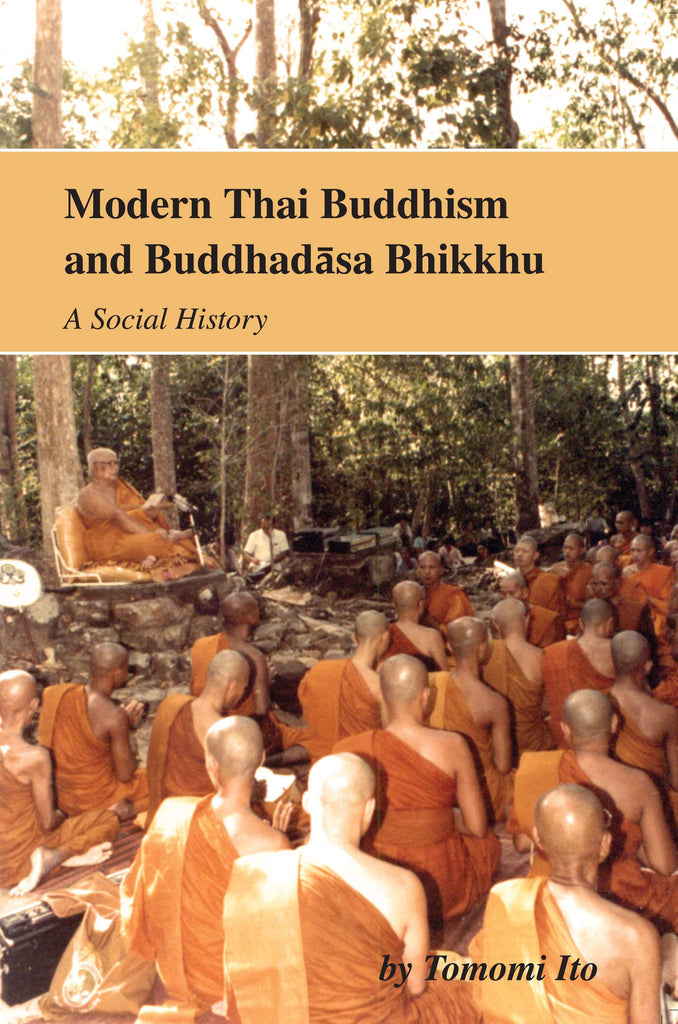By Tomomi Ito
The Buddhist monk Buddhasdasa Bhikku (1906-1993) injected fresh life into Thai Buddhism by exploring and teaching little known transcendent aspects of the religion. His investigations excited both monks and lay people, and gave rise to the vigourous discussion in shops, temple yards and newly founded Buddhist associations. Moreover, he was a prolific author, who produced a rich array of publications that are indicative of his popularity and the impact of his teachings. While these discussions included serious exchanges on doctrine and practice, they also included jokes and light humor, criticisms of weak evidence for certain positions, and a defamation campaign arising from rumors that Buddhadasa was a communist sympathizer.
Buddhadasa's thoughts and historical context coincide with the general picture of "modern Buddhism" and he may be seen as an agent of "Buddhist modernity," but he worked predominantly in Thailand through the medium of the Thai language, and he contributed much more significantly to Thai Buddhists than to Buddhist practice outside the country.
An enormous amount of material relating to Buddhadasa Bhikkhu has been captured in religious journals and in numerous "pocket books" aimed at a general audience. Departing from the classical method of studying Buddhism through philology, Tomomi Ito's account of Buddhadasa Bhikkhu draws on this popular literature and on conversations with a broad spectrum of the people involved in these discussions to develop an account of Buddhism as it is experienced by Thai people. The result is a lively intellectual and social history of contemporary Thai religion and society built around the life of an exceptional monk who captured the interest of Buddhists pursuing spiritual depth in the context of the ideological conflicts of the Cold War.
"A welcome contribution...An excellent contribution to Buddhist Studies." - Monica Lindberg Falk
"[Ito’s book] offer[s], for the first time, an honest, non-hagiographical, study of Buddhadãsa...It would make a wonderful addition to courses on modern Southeast Asian history and religion, and force people to rethink the way they have read the work of Buddhadãsa Bhikkhu." - Justin McDaniel
"...should be considered a fundamental reference book not only by those who want to know Buddhadāsa Bhikkhu better, but also by scholars of Thai history and people interested in Southeast Asia...an extraordinary chance to penetrate the history of Thailand and to understand Southeast Asia and its position in the political events of the 20th century." - Claudio Cicuzza
“...this book provides a perceptive account of the profound impact Buddhadãsa has had on many aspects of Thai Buddhism. It fills some important gaps in Buddhadã sa-related scholarship and therefore deserves to be read by those interested in Theravada and Thai Buddhist studies as well as by scholars of Thai and Southeast Asian history.”- Jordan Baskerville
"Apart from her meticulous and thorough research, Ito deserves high praise for her innovative approach - introducing the concept of the Buddhist Public Sphere to the study of a well researched in the history of Thai Buddhism." - Susanne Ryuyin Kerekes
Tomomi Ito is Associate Professor in the Graduate School and Faculty of Intercultural Studies at Kobe University.
Publication Year: 2012
360 pages, 229mm x 152mm
ISBN: 978-9971-69-572-9, Paperback
NUS Press

